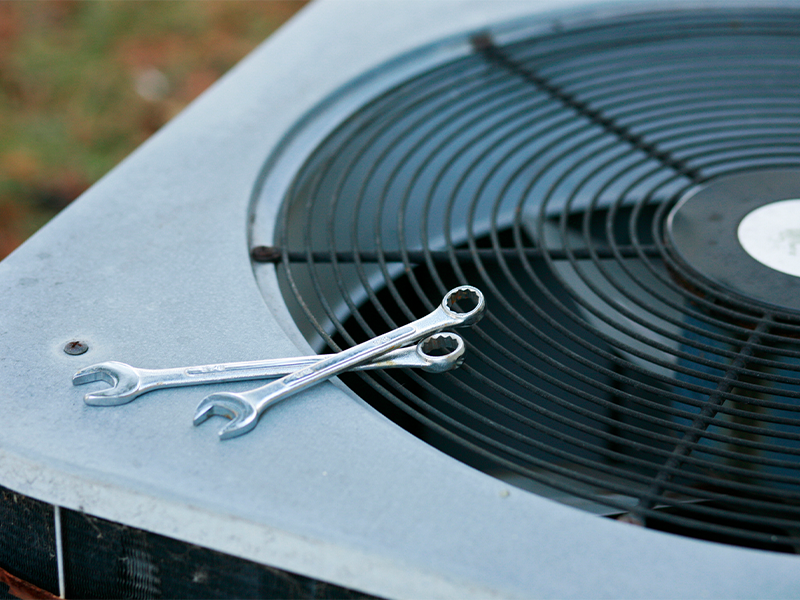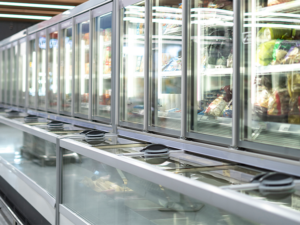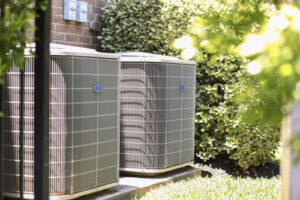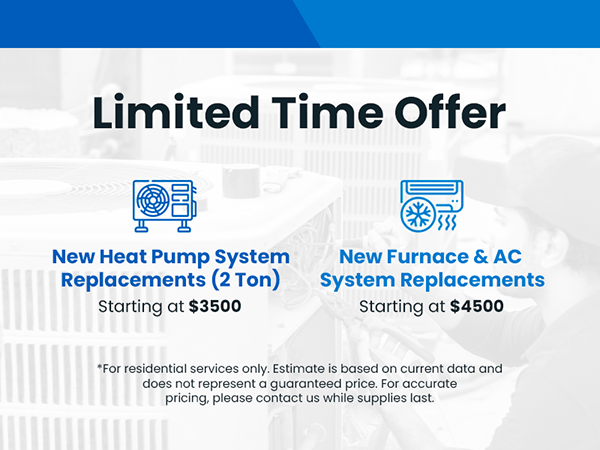
HVAC Mechanical Systems operate as the lung of a home, providing heating, ventilation, and air conditioning to ensure optimal comfort. Like any complex machinery, these systems require regular attention to function efficiently and effectively. Neglect or improper care can lead to decreased performance and unexpected breakdowns that can, quite honestly, incur substantial repair costs.
Prolonging the Life of HVAC Equipment
To prolong the life of HVAC equipment, regular maintenance is key. Skilled technicians can address minor issues before they escalate, helping to keep the system running smoothly for years.
Mechanical components of HVAC systems also experience wear and tear. Regular lubrication of moving parts, checking belts, and inspecting electrical components can reduce friction and prevent malfunctions, thus, extending the system’s lifespan. Besides, thermal stress from constant heating and cooling can impact HVAC equipment. Periodic maintenance helps manage this stress by ensuring all components function correctly.
Cleanliness is vital for HVAC efficiency. Dirt and debris can obstruct airflow and heat transfer, forcing the system to work harder. Maintenance crews should regularly clean coils, filters, and blower components to maintain performance and longevity.
Energy Efficiency and Cost Savings
Regular maintenance of an HVAC system is crucial for energy efficiency. A well-maintained system uses less power because all components work optimally, reducing unnecessary strain and energy consumption.
Preventive maintenance leads to cost savings on energy bills. Systems that aren’t properly serviced need more energy to achieve the desired temperature, resulting in higher operational costs.
Efficient HVAC systems also reduce a home’s carbon footprint. By minimizing energy use for heating and cooling, they decrease reliance on fossil fuels and lower greenhouse gas emissions.
Consistent HVAC maintenance offers long-term financial benefits. It helps avoid the high costs associated with major repairs or system replacements, leading to significant savings over time.
Improved Air Quality
Consistent maintenance of an HVAC system is essential for maintaining high indoor air quality. Replacing filters and cleaning ducts removes contaminants, ensuring that the air circulating through a home or building is clean and healthy.
Technicians are best relied upon for detecting and addressing mold and mildew buildup within HVAC systems. Their thorough cleaning prevents the spread of these allergens, helping to maintain a healthier breathing environment.
An optimally maintained HVAC system also regulates humidity levels effectively. By controlling moisture, it reduces the growth of dust mites and mold; and improves the overall indoor air conditions. Meanwhile, regularly servicing the HVAC components is necessary for proper air circulation. This prevents the recirculation of stale air, which can otherwise negatively impact the comfort and health of occupants.
Consistent Comfort Throughout the Year
Maintaining an HVAC system helps ensure your comfort throughout the year. Professional upkeep helps the system handle varying weather conditions, providing a steady indoor temperature for relaxation and well-being.
A well-maintained HVAC system also operates smoothly, avoiding sudden temperature fluctuations that can disrupt comfort. Regular maintenance ensures that the system consistently delivers the right amount of warm or cool air.
The reliability of an HVAC system during extreme temperatures is a direct result of ongoing professional care. This prevents failures during critical times, whether in a hot summer or a cold winter. Besides, regular maintenance not only ensures consistent comfort but also prevents overall system deterioration. Routine checks by technicians identify and fix potential issues, keeping your home or office comfortably regulated throughout the year.
Environmental Impact
A well-maintained HVAC system operates more efficiently, which reduces its environmental impact. Regular upkeep enhances the system’s performance and lowers its carbon footprint by optimizing energy use. This means less strain on power plants, leading to reduced pollution and conservation of resources.
Routine servicing also helps HVAC systems meet environmental regulations. Technicians ensure that systems operate within standards designed to minimize harmful emissions and conserve natural resources.
By maintaining HVAC systems diligently, you also support broader sustainability efforts. Efficient systems circulate cleaner air and manage waste effectively, contributing to a healthier indoor environment and reducing atmospheric contaminants.
Detecting Problems Early
To prevent major malfunctions in the HVAC system, it is advisable to detect issues early. Routine inspections by professional technicians can identify potential problems before they lead to expensive repairs.
Maintenance schedules help pinpoint wear and tear that may affect the system’s efficiency. This proactive approach enables timely repair or replacement of parts nearing the end of their service life.
Regular system checks also reveal inefficiencies in energy use. By addressing these issues, technicians ensure the HVAC system runs reliably and efficiently. More so, consistent maintenance allows for updates to system settings and components. This keeps the system aligned with current industry standards and technological advancements.
Maintaining the Manufacturer’s Warranty
To keep your HVAC system’s warranty valid, it’s advisable to follow a consistent maintenance schedule as required by manufacturers. Skipping maintenance can void the warranty, leaving you responsible for any future repair costs.
Hiring qualified professionals to carry out the maintenance ensures that the manufacturer’s standards are met. This keeps the warranty in effect and provides ongoing protection against defects and malfunctions.
Maintaining detailed records of each maintenance session is also important for warranty purposes. This documentation proves that the system has been properly serviced, making it easier to process any warranty claims.
Manufacturers often require that repairs and maintenance be performed using authorized parts and service providers. Adhering to these guidelines not only preserves warranty coverage but also supports the system’s performance and longevity.
How Often Should You Schedule Maintenance?
Homeowners should schedule HVAC maintenance at least twice a year, ideally in spring and fall, to prepare for the cooling and heating seasons. For commercial systems or those operating year-round in harsh climates, quarterly checks might be necessary to ensure consistent performance and prevent disruptions.
Older systems or those with heavy usage may require more frequent inspections to avoid performance issues and extend their service life. Ultimately, following the manufacturer’s maintenance recommendations is important as it ensures system integrity and helps preserve warranty coverage.
Comfort All-Year Round!
At Affordable Aire and Refrigeration, we are committed to providing expert HVAC services tailored to your unique needs. Contact us today for a free consultation and experience the difference our professional care can make for your home or business. Let us help you maintain comfort and efficiency year-round!






